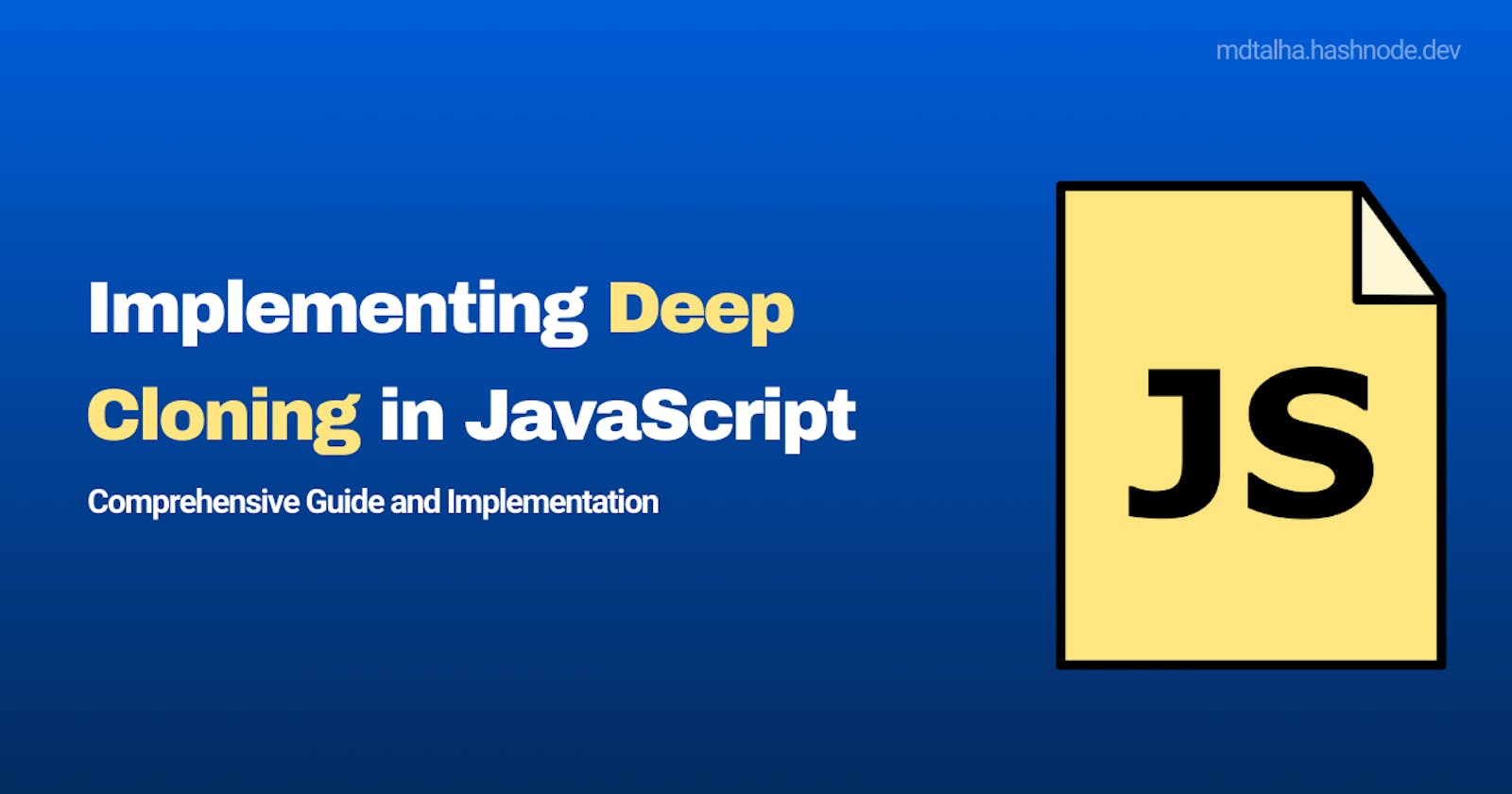Deep cloning is a fundamental concept in JavaScript, especially when dealing with complex data structures. Unlike shallow cloning, which creates a copy of the original object with references to the same nested objects, deep cloning creates a completely independent copy, including all nested structures. In this blog post, we'll delve into the concept of deep cloning in JavaScript and explore an implementation using the provided code.
Understanding the Code: Let's begin by analyzing the provided code for deep cloning:
export default function deepClone(value) {
if (typeof value !== 'object' || value === null) {
return value;
}
if (Array.isArray(value)) {
return value.map((item) => deepClone(item));
}
return Object.fromEntries(
Object.entries(value).map(([key, value]) => [key, deepClone(value)]),
);
}
Explanation:
Base Case Check:
- The function begins by checking if the provided value is not an object or is null. If true, it means the value is a primitive type, and a direct copy is returned.
Array Handling:
- If the value is an array, the
Array.isArraycheck ensures that each element in the array is also deeply cloned using themapfunction.
Object Handling:
- For objects, the code utilizes
Object.entriesto get an array of [key, value] pairs. Themapfunction is then applied to each pair, recursively callingdeepCloneon the nested values. Finally,Object.fromEntriesis used to convert the array of [key, value] pairs back into an object.
Using the deepClone Function: Now that we understand how the deepClone function works, let's see how it can be employed in practical scenarios:
const originalObject = {
name: 'John',
age: 25,
address: {
city: 'Example City',
country: 'Sample Country',
},
};
const clonedObject = deepClone(originalObject);
console.log(clonedObject);
/*{
name: 'John',
age: 25,
address: {
city: 'Example City',
country: 'Sample Country'
}*/
